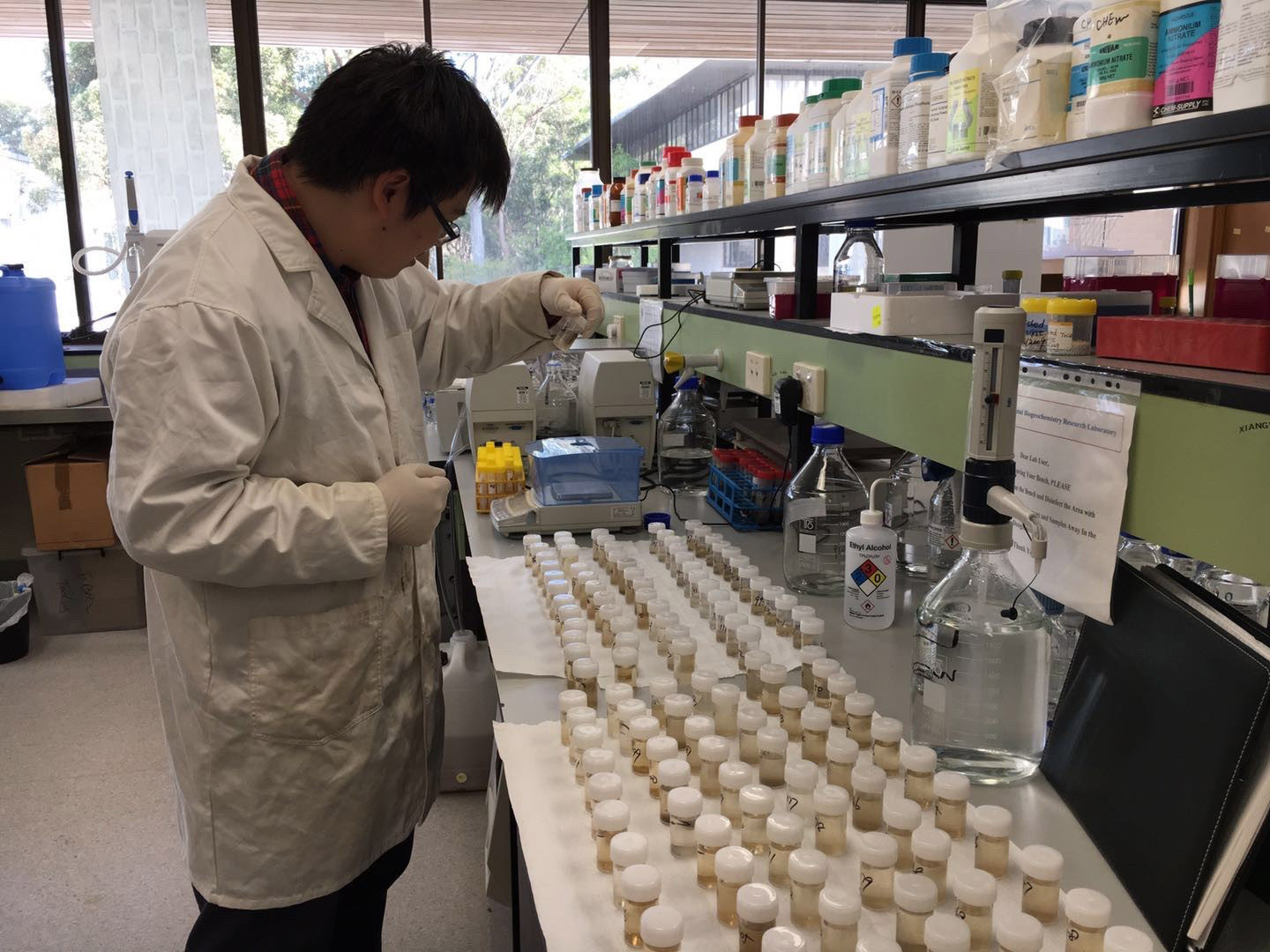Xiangyu Liu is a Soil CRC PhD student studying at Griffith University and working on the PhD project Developing sensitive soil health indicators in Australian agricultural land.
His PhD supervisors are Chengrong Chen (Griffith University), Lukas Van Zwieten (NSW DPI) and Mehran Rezai Rashti (Griffith University).
Xiangyu had a chat with Soil CRC Communications Manager, Katherine Seddon.
What is your PhD project all about?
It is about developing sensitive soil health indicators in the Australian context. There is so much data and so many soil indicators available for farmers to better understand their soil health. But this can be overwhelming and it is hard to know which indicator is the best fit for each farmer. This project is looking to generate a new indicator that is cheap and also very easy to understand and use.
We have narrowed our study to agricultural land only. It is monoculture and intensive and is directly impacted by external pressures. We can clearly see the yield results to see the impact of our work.
At the moment we are doing some pot trials based on data synthesising. I am really enjoying the work.
What do you love about it?
I really love the practical side of my PhD, that it will make a real difference for farmers.
I also love the challenge of it. At the beginning of my project, my supervisor told me it was going to be a really hard one because there were so many treatments in each experiment – there’s at least 24 treatments! At the time, I had no idea how hard this would be. But I soon discovered that this meant that I had to compact each treatment one by one, and do that with three replicates and six sampling times for each treatment! That definitely felt like the hardest part.
After that, I worked through the process and I proved to both myself and to my supervisor that I could do it. That has been the most fun and challenging part of my PhD, going through every process in the experiments. Some of my colleagues can’t believe I did that many treatments, but it is possible!
Why did you choose to study soils?
My undergraduate degree was more chemistry related, and I didn’t have a lot to do with soils. But then I met Professor Chengrong Chen and that all changed.
Chen asked me if I wanted to make a difference for farmers. I said “Why not?”
The experiments that I used to do were all based in the lab, identifying chemical compounds. With soil, I can make a practical difference. I can give suggestions to farmers that can help them to understand their soils and increase their yield which ultimately helps them to earn more money.
This makes me feel really happy. I can make a difference, I can make an actual impact on agriculture which is really meaningful.
Looking to the future, we need to feed more people so therefore, we need to produce more food. I am really happy to be part of this.
How did you get here?
I was an undergraduate in China, studying Environmental Science at Huazhong Agricultural University and I was working at an event, as a caterer. Professor Chengron Chen was attending this forum and presenting on the impact of prescribed fire on soil phosphorous cycling.
After the presentation, Chen came and talked to me. He was asking me about my studies and if I was going to do a PhD. I hadn’t decided yet, but I knew I wanted to do a PhD.
Chen said that I should come to Australia, so I said why not? I did a masters, working on soil amendments. After that I understood the change in how people understand and think about organic carbon. I feel my research really helps people, which makes me excited and happy.
Now, I have almost finished my PhD. I only have five months to go.
What do you hope to do afterwards?
There are lots of things I want to do in the short and long term.
In the short term, I want to publish all my findings from my PhD studies. My data supports about eight papers, so that will take me some time.
I would really like to carry on with this soil health indicator project. There is so much work to be done in this area. We are really only at the first stage. The first stage is developing them, next stage is to test them in real life in the field. Then we need to explore them more.
What difference does it make to be part of the Soil CRC?
It is a great experience to be a part of a Soil CRC project. The support of the scholarship has helped a lot financially. But also, being part of the Soil CRC has provided me with a platform to communicate with other scientists and industries which granted me a chance to study a really interesting research topic. Most importantly, the Soil CRC is able to gather the real-time feedback from end-users and it pushes lab results into a practical outcomes. That’s what I love.

